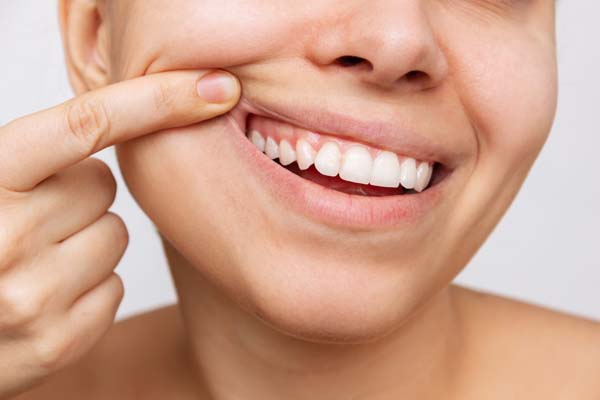Getting Follow Up Care After Dental Implants
 Dental implants offer individuals the opportunity to regain a fully functioning set of teeth. The aftercare procedures are imperative to ensure the surgical area heals and implant osseointegration occurs. Osseointegration is the process by which the bone in the jaw fuses with the implant posts. This creates the solid foundation needed to support the apparatus. Following the dentist’s procedures for at-home care and adhering to a follow-up care schedule are important to the success of implants.
Dental implants offer individuals the opportunity to regain a fully functioning set of teeth. The aftercare procedures are imperative to ensure the surgical area heals and implant osseointegration occurs. Osseointegration is the process by which the bone in the jaw fuses with the implant posts. This creates the solid foundation needed to support the apparatus. Following the dentist’s procedures for at-home care and adhering to a follow-up care schedule are important to the success of implants.
Why is follow-up care required?
The first year following surgery is the most critical time for healing. It can take up to 12 months for the process of osseointegration to occur. It is also the time when the gums are most vulnerable to infection. Implant failure is much more likely to occur during this period than at any time after that first year.
Procedures for follow-up appointments
During follow-up appointments, a dental professional assesses the gums, implants, and surrounding teeth to determine how well the patient is healing and whether there are any signs of complications. The appliance is artificial, but this does not mean that no care is required. Implants have the potential to last a lifetime when proper attention is given. Follow-up care often involves evaluation for the following conditions:
- Evidence of traumatic occlusion
- Signs of tissue inflammation
- Presence of bleeding when tissue is probed
- Indications of infection or presence of pus
- Accumulation of calculus or plaque
Taking an X-ray of the individual’s jaw is a common procedure in post-surgical care. It is possible for the patient to receive more than one over the first year following placement. The imaging allows for examining the condition of the bone, the dental implants, and surrounding anatomical structures.
Assessment in the first six weeks
Often, the first post-placement appointment is scheduled within two weeks of surgery. At this time, soft tissue is assessed for healing progress. Hard tissue, soft tissue, and the implant are examined for signs of infection. Often, a second appointment is scheduled for six weeks after the dental implants are placed. Soft-tissue healing is expected to be complete at this time.
Assessment every three to four months post placement
After the initial follow-up appointments, patients are generally scheduled for follow-up care every three to four months. This involves monitoring the progress of osseointegration as well as oral hygiene status. Procedures are reviewed or altered when necessary. The condition of the patient's implants and overall oral health determine the frequency of recommended follow-ups after the first year.
Assessments of bite force
At each appointment during the first year, dental professionals look for any indication that the patient is biting down on the implant with too much force. An individual who is diagnosed with bruxism may require a mouth guard to prevent damage to or failure of the implant. For others, it is imperative to refrain from using the implant to chew during the healing process.
Conclusion
Dental implants can be a good choice for replacing missing teeth. Ensuring success requires proper oral hygiene and an adherence to post-placement follow-up care.
Request an appointment or call Brede Ciapciak Dental at 781-443-8134 for an appointment in our Needham office.
Recent Posts
Dental implants replace tooth roots, anchoring right into the jawbone. They support natural chewing forces, protect the jawbone from tissue loss, and stabilize confident smiles. This design makes them a smart investment for those seeking a long-term solution to replace missing teeth. While dental implants can last a lifetime, their longevity depends on proper care…
When someone is missing one or more teeth, it will affect not only their ability to eat, but also the health of their jawbone and face structure, and this can all be corrected with dental implants. As an additional concern, these implants can improve your smile, which will be good for their confidence level and…
Today, many people are choosing dental implants to treat severe damage and tooth loss. This procedure is often preferred to other alternatives because it offers natural-looking results that usually last a lifetime. However, it is necessary to properly care for implants, especially during the first few weeks after surgery.For many people, dental implants require multiple…


